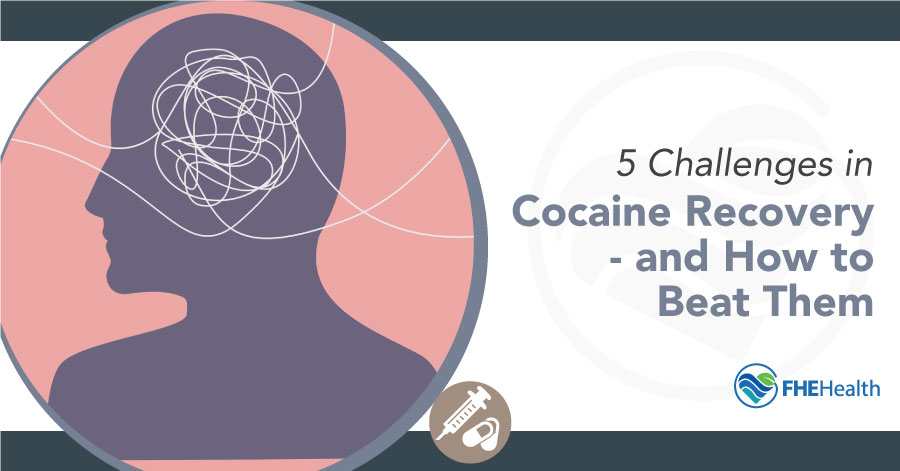
Substance abuse recovery is fraught with challenges. With more education, treatment and the right supports, you can manage cocaine recovery challenges and permanently leave cocaine behind.
Why Is Cocaine so Addictive?
The 2019 National Survey on Drug Use and Health (NSDUH) estimated that 5.5 million people were past-year users of cocaine in 2019, and 1 million people had a cocaine use disorder. One reason those numbers aren’t lower is that cocaine is very addictive. Its very potent high can hook even first-time users.
Using cocaine increases dopamine levels in the brain and prevents the brain from clearing out the dopamine until the drug is completely gone from the body. It only takes about 15-20 minutes for the brain to again absorb dopamine, but this leaves the brain exhausted and unable to produce dopamine naturally. The result is a crash, with cocaine users and addicts needing to use again. Further complicating the issue, addiction can occur even after the first use.
Once someone tries cocaine, the highly addictive drug can ensnare the individual in a short time. This can lead to dependence and then addiction. Long-term cocaine use carries challenges that are unique as well as some common to other abused drugs.
Cocaine addiction has a high rate of relapse. Besides being one of the most-abused illicit drugs in the United States, cocaine is involved in more than 50% of the overdose deaths in this country. It’s often combined with other substances, which adds to the danger of overdose.






